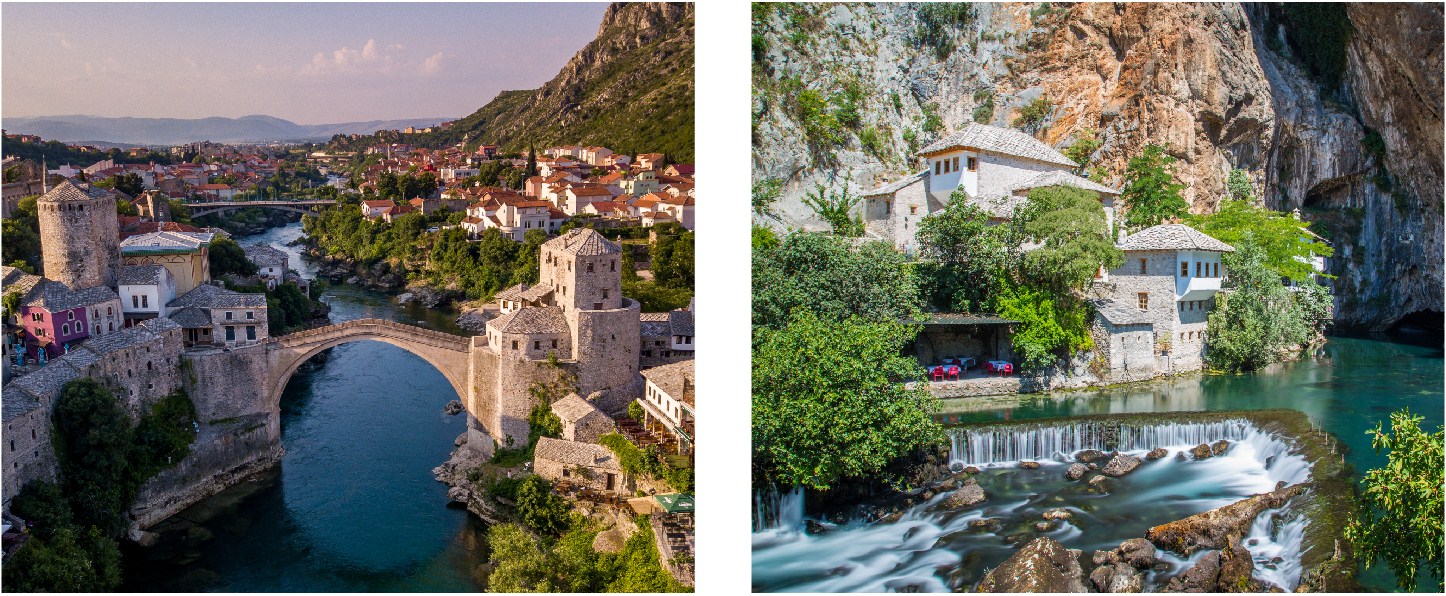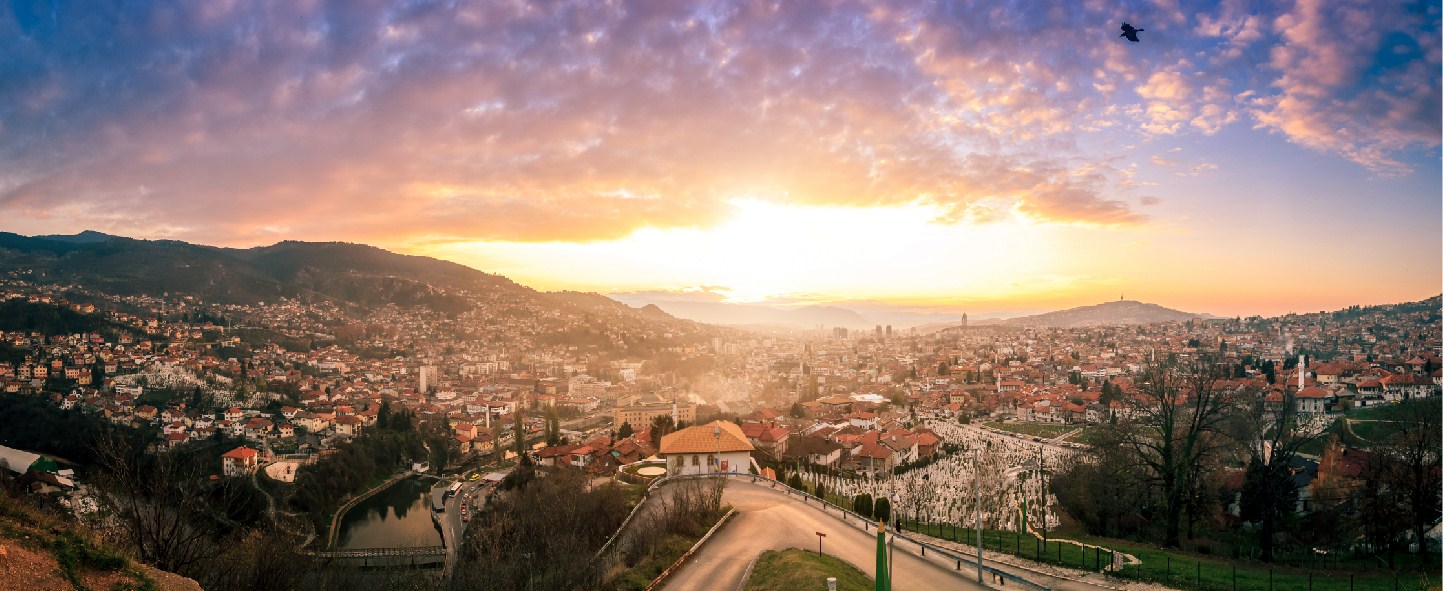About the heart shaped country
Bosnia and Herzegovina is a country in Southeastern Europe located on the Balkan Peninsula. Sarajevo is the capital and largest city. Bordered by Croatia to the north, west, and south; Serbia to the east; Montenegro to the southeast; and the Adriatic Sea to the south, with a coastline about 20 kilometers (12 miles) long surrounding the city of Neum. In the central and eastern interior of the country the geography is mountainous, in the northwest it is moderately hilly, and the northeast is predominantly flatland. The inland is a geographically larger region and has a moderate continental climate, with hot summers and cold and snowy winters. The southern tip of the country has a Mediterranean climate and plain topography.
A region that traces permanent human settlement back to the Neolithic age, during and after which it was populated by several Illyrian and Celtic civilizations. Culturally, politically, and socially, the country has a rich history, having been first settled by the Slavic peoples that populate the area today from the 6th through to the 9th centuries AD. In the 12th century the Banate of Bosnia was established, which evolved into the Kingdom of Bosnia in the 14th century, after which it was annexed into the Ottoman Empire, under whose rule it would remain from the mid-15th to the late 19th centuries.

The Ottomans brought Islam to the region, and altered much of the cultural and social outlook of the country. This was followed by annexation into the Austro-Hungarian Monarchy, which lasted up until World War I. In the interwar period, Bosnia was part of the Kingdom of Yugoslavia and after World War II, the country was granted full republic status in the newly formed Socialist Federal Republic of Yugoslavia. Following the dissolution of Yugoslavia, the country proclaimed independence in 1992, which was followed by the Bosnian War, lasting until late 1995.

Today, the country maintains high literacy, life expectancy and education levels and is one of the most frequently visited countries in the region, projected to have the third highest tourism growth rate in the world between 1995 and 2020. Bosnia and Herzegovina is regionally and internationally renowned for its natural beauty and cultural heritage inherited from six historical civilizations, its cuisine, winter sports, its eclectic and unique music, architecture and its festivals, some of which are the largest and most prominent of their kind in Southeastern Europe. The country is home to three main ethnic groups or, officially, constituent peoples, as specified in the constitution. Bosniaks are the largest group of the three, with Serbs second and Croats third. A native of Bosnia and Herzegovina, regardless of ethnicity, is identified in English as a Bosnian. The terms Herzegovinian and Bosnian are maintained as a regional rather than ethnic distinction, and the region of Herzegovina has no precisely defined borders of its own. Moreover, the country was simply called “Bosnia” until the Austro-Hungarian occupation at the end of the 19th century.
Internationally renowned for its natural beauty and cultural heritage inherited from six historical civilizations, its cuisine, winter sports, its eclectic and unique music, architecture and its festivals, some of which are the largest and most prominent of their kind in Southeastern Europe
